Aromatherapy Massage:
Table of Contents
Definition
Aromatherapy is the use of essential oils to promote healing and a feeling of well-being and relaxation in the recipient. The essential oils are extracted from the parts of herbs and plants and contain all the properties of the plants themselves. There are several ways of applying the oils, including adding the oils to your bath or inhaling them, but the most popular and effective is through massage.
Aromatherapy massage is Swedish massage therapy using massage oil or lotion that contains essential oils (highly concentrated plant oils).
During an aromatherapy massage, you inhale these essential oil molecules or absorb them through your skin. They are thought to promote beneficial changes in your mind and body by affecting the limbic system, a region of the brain known to influence the nervous system.
Aromatherapy massage combines two powerful and popular techniques for increased healing power, stress reduction, and pain relief. The vast array of essential oils that can be inhaled or applied topically can provide healing, soothing, and relaxing effects.
You may find that aromatherapy massage provides the extra therapeutic and psychological care you need to get the most benefit from your massage session.
What is an Aromatherapy Massage?
Aromatherapy uses essential oils that are thought to have healing properties. These oils are the concentrated essences taken from the flowers, fruit, seeds, leaves, and bark of certain plants. There are about 400 essential oils, but only about 40 are commonly used in aromatherapy. Aromatherapists believe aromatherapy can boost well being, relieve stress and help to refresh your body.
Aromatherapy massage uses essential oils derived from plants to achieve therapeutic benefits. In aromatherapy massage, essential oils are usually mixed with a carrier oil like sweet almond, apricot kernel, or grapeseed oil. A relaxing aromatherapy massage, for instance, might have lavender or bergamot, while a massage for sore muscles might include peppermint and eucalyptus. Before your first aromatherapy massage session, your massage therapist will conduct an initial consultation with you to learn about your desired outcome. They might ask about the current state of your work life, home life, physical health and mental state to learn about what you need.
Aromatherapy may be an even older form of treatment, ranging back almost 6,000 years. The Ancient Egyptians, Chinese, Indians, Romans, and Greeks used aromatic oils for healing, as perfumes, and in religious ceremonies. Over the last century, scientists have demonstrated the healing qualities of many essential oils. In World War I, practitioners used these compounds to treat burns, wounds, infections, and even gangrene. In addition to physical healing, essential oils offer many personal and psychologicalbenefits.
Aromatherapy practitioners treat their clients with a wide variety of essential oils:
- Frankincense, lavender, and rose to diminish fear and anxiety
- Neroli oil for blood pressure and stress
- Orange blossom oil for peace and calm
- Peppermint or lemon to soothe nausea and vomiting
- Tea tree oil to fight bacterial/fungal infections and inflammation
- Rosemary oil for flexibility and motion
- Ginger or dwarf pine for pain
- When combined with massage techniques, aromatherapy can provide an additional level of relaxation and healing. Inhaled scents may work on clients’ minds and emotions to encourage relaxation and stress release. When rubbed into the skin, massage oils containing essential oils (in proper balance) can provide potent relief from pain and inflammation.
How does Aromatherapy work?
There are a couple of theories to explain how aromatherapy might work. The first is that you directly absorb the oils through the skin into your bloodstream. The oil can then travel through your body and have an effect on a specific organ or function in your body.
An aromatherapy massage is an alternative therapeutic technique that combines the natural therapeutic properties of essential oils and the healing power of massage therapy. An aromatherapy massage is performed on nude clients; however, the therapist will leave the room so that you can undress in privacy. Aromatherapy massage not only has powerful physical, emotional, and mental effects but it is also described as a great relaxing and rejuvenating experience. The benefits of aromatherapy massage affect a wide range of health conditions in the nervous, circulatory, lymphatic, immune, and muscular systems. An aromatherapy massage is a pleasant method for mental clarity, relaxation, stress, and headache alleviation.
Aromatherapy Massage Video:
What do Essential oils do?
Different oils have different uses and effects.
Basil essential oil: is used to sharpen concentration and alleviate some of the symptoms of depression. It may relieve headaches and migraines. It should be avoided during pregnancy.
Bergamot essential oil: is said to be useful for the urinary tract and digestive tract. When combined with eucalyptus oil it may help relieve skin problems, including those caused by stress and chicken pox.
Rosemary essential oil: may benefit the nervous and circulatory systems.
Black pepper essential oil: is commonly used for stimulating circulation, muscular aches and pains, and bruises. Combined with ginger essential oil, it is used to reduce arthritis pain and improve flexibility.
- Chamomile essential oil: can treat eczema
- Citronella essential oil: is a relative of lemongrass and acts as an insect repellent
- Clove essential oil: is a topical analgesic, or painkiller, that is commonly used for toothache. It is also used as an antispasmodic antiemetic, for preventing vomiting and nausea, and as a carminative, preventing gas in the gut. It has antimicrobial, antioxidant, and antifungal properties.
- Eucalyptus essential oil: can help relieve the airways during a cold or flu. It is often combined with peppermint. Many people are allergic to eucalyptus, so care should be taken.
- Geranium essential oil: can be used for skin problems, reduce stress, and as a mosquito repellant.
- Jasmine essential oil: has been described as an aphrodisiac. While scientific evidence is lacking, research has shown that the odor of jasmine increases beta waves, which are linked to alertness. As a stimulant, it might increase penile blood flow.
- Lavender essential oil: is used as an antiseptic for minor cuts and burns and to enhance relaxation and sleep. It is said to relieve headache and migraine symptoms.
- Lemon essential oil: is said to improve mood and help relieve the symptoms of stress and depression.
- Rosemary essential oil: may promote hair growth, boost memory, prevent muscle spasms, and support the circulatory and nervous systems.
- Sandalwood essential oil: is believed by some to have aphrodisiac qualities.
- Tea tree essential oil: is said to have antimicrobial, antiseptic, and disinfectant qualities. It is commonly used in shampoos and skin care products, to treat acne, burns, and bites. It features in mouth rinses but it should never be swallowed, as it is toxic.
- Thyme essential oil: is said to help reduce fatigue, nervousness, and stress.
- Yarrow essential oil: is used to treat symptoms of cold and flu, and to help reduce joint inflammation. Oil for a massage will be mixed with a “carrier oil” that dilutes the oil and provides lubrication.
Caution when using Essential oils:
Some oils produce toxins that can cause damage to the liver, kidneys, and nervous system, especially if taken internally.
Swallowing essential oils can be hazardous, and fatal in some cases.
Individuals with any of the following conditions should be extra careful when using aromatherapy:
An allergy, or allergies
Hay fever, a type of allergy
Asthma
Skin conditions such as eczema or psoriasis
People with the following conditions must be extremely cautious:
Epilepsy
Hypertension, or high blood pressure
If the oil is to be mixed with a carrier, the individual should tell the aromatherapist or massage therapist about any nut allergies,
because carrier oils are often obtained from nuts and seeds.
Aromatherapy can have side effects, but these are normally mild and do not last long.
They include:
Nausea
Headaches
Some allergic reactions
The use of aromatherapy by pregnant or nursing mothers has not been proven safe by research, so it is not recommended.
During the first trimester of pregnancy, aromatherapy may pose a risk to the developing fetus. Women who are breastfeeding should avoid peppermint essential oil, as it may be expressed in breast milk.
Essential oils derived from citrus may make the skin more sensitive to ultraviolet light, increasing the risk of sunburn.
Commonly oils for Aromatherapy Massage:
- Frankincense, lavender, and rose to diminish fear and anxiety
- Neroli oil for blood pressure and stress
- Orange blossom oil for peace and calm
- Peppermint or lemon to soothe nausea and vomiting
- Tea tree oil to fight bacterial/fungal infections and inflammation
- Rosemary oil for flexibility and motion
- Ginger or dwarf pine for pain
- When combined with massage techniques, aromatherapy can provide an additional level of relaxation and healing. Inhaled scents may work on clients’ minds and emotions to encourage relaxation and stress release. When rubbed into the skin, massage oils containing essential oils (in proper balance) can provide potent relief from pain and inflammation.
Benefits of Aromatherapy Massage:
Everyone knows a massage can be relaxing but do you really know the main benefits and effects it can have on your body?
Here are just a few of the most common benefits:
- Reduces Muscular aches and pains
- Improves Joint mobility and Flexibility
- Reduces and eliminates pain
- Improves blood circulation
- Improves lymphatic drainage
Improved Healing Power
An aromatherapy massage can improve the healing of the mind and body. Massage therapy uses manipulation techniques of the soft tissues in the body to promote healing. Massaging with essential oils can help aid circulation, relieve pain, reduce swelling, speed healing after injuries, restore function to the body, and release tension. Marjoram essential oil is an antispasmodic and relaxing oil, It has been used for muscle spasms, bruises, sore muscles, and headaches.
Heightened Relaxation Inhaling essential oil scents can calm the mind and emotions, thus encouraging relaxation and stress release. A message on its own is very relaxing, but when adding the powers of aromatherapy, essential oils have a complementary effect. Lavender essential oil is well known for its calming and sedative properties. Always a favorite for massages.
Enhanced Mood
Essential oils have been used for generations for their uplifting properties. Adding essential oils to a massage whether through diffusing or massage oils can enhance your mood and your overall wellbeing. Orange essential oil is often used to uplift mood so it is fabulous to use in a citrus massage oil.
Positive Emotional Health
The areas in the brain responsible for scent, emotion, and memory are closely related. Certain scents can trigger positive memories and feelings which can contribute to improved emotions. Grapefruit essential oil has calming and sedative properties with an aroma that is energizing and just wonderful.
Pain & Inflammation Reduction
When using essential oils topically on the skin, in the form of massage oils, additional relief from pain and inflammation can be achieved. Massage oils can aid in therapeutic massage to relax and soothe muscles, increase circulation, and stimulate the tissues. Peppermint essential oil has invigorating and cooling properties that can soothe discomfort.
Better circulation
With an aromatherapy massage, parts of the body are gently manipulated, which increases blood flow to the muscles and vital organs.
An aromatherapy massage enhances the flow of blood via the absorption of oils through the skin and into the bloodstream.
Essential oils used to encourage circulation and strengthen capillaries are cypress, frankincense, grapefruit, juniper berry, and sandalwood.
Decreased anxiety
A massage combined with aromatherapy can calm the senses and induce relaxation.
According to the University of Maryland Medical Center, aromatherapy massage decreases anxiety levels by stimulating the release of endorphins, which are the body’s natural painkillers and stress-reduction hormones.
Essential oils used to eliminate anxiety are rosewood, sandalwood, and vanilla.
Enhanced mental awareness
The scents of essential oils and the stimulation of massage on the body activate the olfactory nerves in the brain, which amplifies serotonin production and enhances a person’s mental capacity.
Essential oils that are used to stimulate the body and mind include juniper berry, sage, and vetiver.
Headache relief
Individuals who suffer from constant headaches may possibly find relief with an aromatherapy massage.
Essential oils typically used to conquer headache pain include peppermint and ylang-ylang.
PMS relief
Premenstrual syndrome affects millions of women each month, plaguing them with bloating, fatigue, and increased sensitivity to pain.
Fortunately, the unpleasant markers of PMS are known to be eliminated via aromatherapy massage.
Oils that are used to treat PMS symptoms are birch, jasmine, and patchouli.
Restful sleep
To help prevent bouts of insomnia, calming methods like aromatherapy massage are recommended to induce sleep.
When used as a tool to encourage sleep, it’s advised to receive an aromatherapy massage in the later afternoon or evening.
Oils that promote restful sleep are lavender, marjoram, and spikenard.
Toxin removal
The gentle manipulation of the body along with the purifying scents of essential oils encourages lymphatic drainage, which assists in the elimination of toxins.
Lemongrass and myrtle are a couple of essential oils helpful in the removal of toxins from the body.
Contraindications for Aromatherapy Massage:
Certain oils are not recommended or should be used with caution. Read each oil’s safety data before use. People with the following conditions should take caution with respect to the below-listed oils:
Epilepsy – people with epilepsy or the risk of seizure should stay away from stimulating essential oils such as sage, sweet fennel, hyssop, eucalyptus, rosemary. Some oils that are safe: lavender, marjoram.
High Blood Pressure – avoid oils that will increase circulation and adrenaline: rosemary, peppermint, hyssop, thyme, eucalyptus, and sage.
Low Blood Pressure – avoid oils that are overly sedating clary sage, ylang ylang, and lavender in very high doses.
Pregnancy – Essential oils can have enormous benefits for pregnant women and as long as they are used according to the dosage chart can help women have a more pleasant pregnancy and delivery. Keep dosages down to 1 percent of essential oils per dilution as per the dosage chart. Avoid the following essential oils: aniseed, basil, cinnamon, fennel, hyssop, juniper, marjoram, myrrh, nutmeg, oregano, parsley, pennyroyal, rosemary, sage, and tagetes. Oils that are safe during the entire pregnancy: bergamot, grapefruit, lemon, lime, mandarin, neroli, palmarosa, petitgrain, rosewood, sandalwood, spearmint, orange, tea tree, vetiver, and ylang ylang. Oils that are safe after the first trimester: chamomile roman, eucalyptus radiata, ginger, lavender, jasmine, and rose (should not be used until ready to go into labor). Oils that are safe for use in the third trimester or during delivery: cedarwood, clary sage, cypress, peppermint, pine, rosemary, and spruce.
Babies & Children under 5 yrs – Keep dosages down to 1% essential oils per dilution as per the dosage chart. Avoid the following essential oils: aniseed, basil, camphor, cinnamon bark, clove bud, clove leaf, eucalyptus radiata fennel, hyssop, juniper, lemongrass, marjoram, nutmeg, oregano, parsley seed, peppermint (under 12), pennyroyal, sage, savory, tagetes and thyme.
Indication of Aromatherapy Massage:
The definition of an indication for massage is literally, a reason to provide someone with a massage, or as a condition that massage may be able to influence positively. For example, a reason to recommend massage would be if they had pain or tension in a part of their body.
The list of indications for massage is extensive, as you would imagine, but here are some common ones to help you to understand the principle: back pain, neck or shoulder pain, muscle spasm, muscle weakness, whiplash, nerve injuries, carpal tunnel syndrome, sciatica, poor circulation, tendinitis, arthritis, fibromyalgia, constipation, headaches and migraines, sinus disorders, and skin problems.
Safety of Aromatherapy Massage:
Essential oils are not soluble in water. Make sure you dilute or fully disperse them when using water as a base.
Essential oils are very concentrated substances and should be diluted before applying them to the skin. Follow guidelines or recipes which recommend a 2 percent to 5 percent solution.
Phototoxic oils are essential oils that, if applied before sun exposure, can cause the skin to burn or darken at a faster rate. Angelica root, bergamot, lemon, lime, ginger, mandarin, orange, and grapefruit are all phototoxic.
Essential oils that can be used in their pure form, not diluted, are tea tree and lavender.
Read about an essential oil before applying it.
Essential oils can cause a prickly, irritating sensation to the skin. Do not rub water on the area. Doing so will cause the oil to spread. Apply any vegetable/carrier oil to the area; this will cause the essential oil to be absorbed and ease the irritation in minutes.
Keep essential oils away from your eyes. If contact occurs, rinse with a neutral oil, and then follow with water.
Keep essential oils out of the reach of children and animals.
Cats in particular have livers that cannot tolerate essential oils in any amount.
If skin irritation or an allergic reaction occurs with any essential oil or product with essential oils in it, discontinue use.
Essential oils should not replace proper health care. If you are under medical supervision consult with your health care provider before using essential oils. Read the safety data on each essential oil before use.
Application of Aromatherapy
Aromatherapy or essential oil therapy is an age-old way of treatment refers which is a mix of a wide range of traditional, alternative, or complementary therapies which use essential oils and other aromatic plant compounds. The essential oils have been used for over 6,000 years, which aim at improving a person’s health, both physically and mentally.
In the treatment of aromatherapy, a wide range of essential oils are used, which have been found to have various degrees of antimicrobial activity. The oils have antiviral, nematicidal, antifungal, insecticidal, and antioxidant properties. Aromatherapy applications include massage, topical applications, and also inhalation. Aromatherapy is a complementary therapy and the treatment does not provide actually a cure for diseases, rashes or illnesses, but aromatherapy acts as a support for conventional treatment of such various conditions.
Not all of the uses of the essential oils in Aromatherapy are supported by scientific evidence, but the treatment has been found to be useful for many. Aromatherapy cannot cure a disease on its own but helps to better the condition. Aromatherapy cannot be treated as a mainstream mode of treatment, but it does act as a cure for several physical and mental conditions, boosting up a traditional or conventional procedure of treatment.

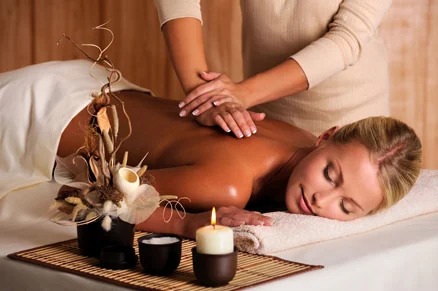

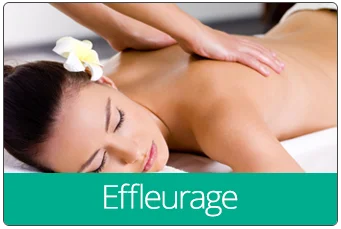
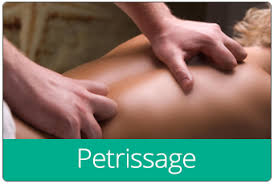
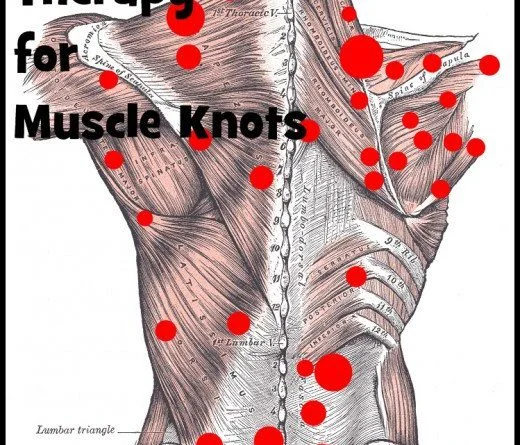
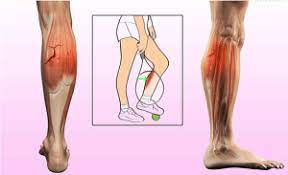
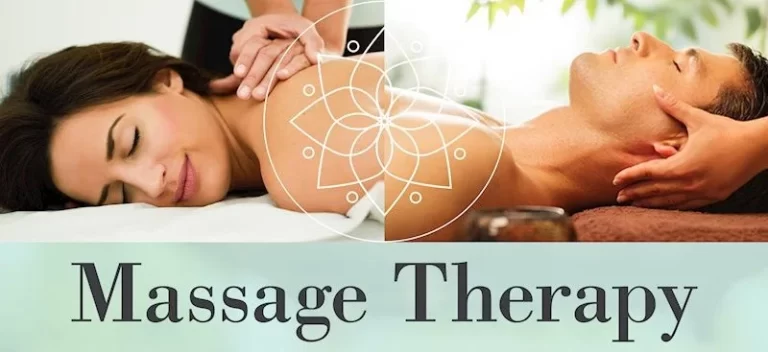
2 Comments